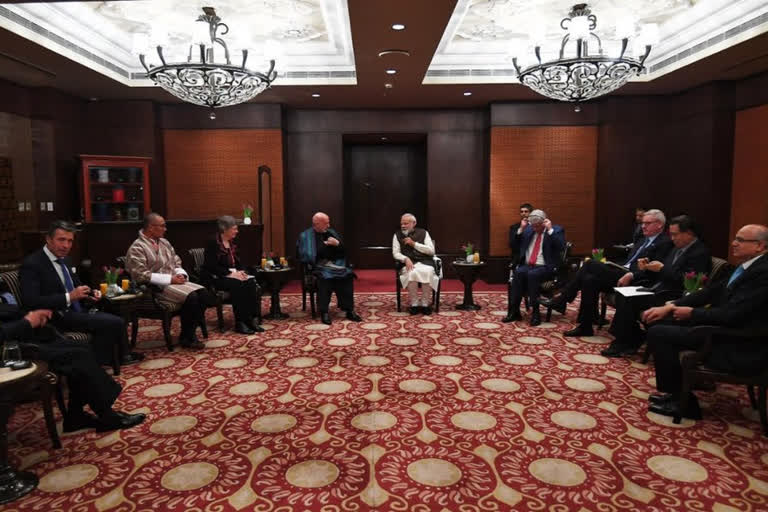New Delhi:India's flagship global conference on geopolitics, the Raisina Dialogue, began on Tuesday with seven former heads of state or government sharing their perspectives on challenges facing the world, including the US-Iran tensions, Afghan peace initiatives and climate change.
During the inaugural session, attended by Prime Minister Narendra Modi, Danish PM and ex-NATO Secretary-General Anders Rasmussen said he would like to see a global alliance of democracies to stand up to oppressive rulers and regimes and India could play an important role in such a coalition.
"India can play an important role in this... I am an admirer of Prime Minister Narendra Modi and India's participation in this alliance is important," he said.
Australian Prime Minister Scott Morrison, who was scheduled to deliver the inaugural address at the Raisina Dialogue but had to call off his four-day visit due to devastating bushfires in several parts of his country, sent a video message for the dialogue.
In his message, Morrison said India is and will remain the "strategic lynchpin" in the Indo-Pacific.
"The term Indo-Pacific reflects the recognition that India's power and purpose will be vitally important to the region and to resolving and supporting shared security challenges. India has taken on an increasingly active role in the Indian Ocean," he said.
Speaking at the event, External Affairs Minister S Jaishankar said Indian foreign policy seeks to achieve a broad engagement with many parties and "managing if not leveraging global contradictions, advancing our interests in a multi polar world and contributing to global good".
During the inaugural session here, New Zealand Prime Minister Helen Clark, former Afghan President Hamid Karzai, former Canadian Prime Minister Stephen Harper, former Swedish Prime Minister Carl Bildt, Rasmussen, former Bhutanese premier Tshering Tobgay and former South Korean Prime Minister Han Seung-soo, discussed global challenges.
Important challenges facing the world related to globalisation, 2030 agenda, the role of technology in modern world, climate change, were part of the discussion.
During the inaugural session, the spiralling US-Iran tensions following the killing of Iranian general Qasem Soleimani in an American drone strike, were also discussed.
Without a change in the government of Iran, peace in the Middle East is not possible, former Canadian PM Harper said.
"Climate change cannot be tackled through targets. We need zero-emission technology and development," Harper said.
Former Afghan President Karzai said Americans must realise they can't force others to follow their line.
"They couldn't do it with Afghans, how can they do it with Iran?" he said, adding that wisdom must prevail and that wisdom must come from US.
Discussing the challenge of climate change, former New Zealand premier Clark said achieving zero carbon is important to combat climate change, but it is important to get national consensus on achieving this target.
